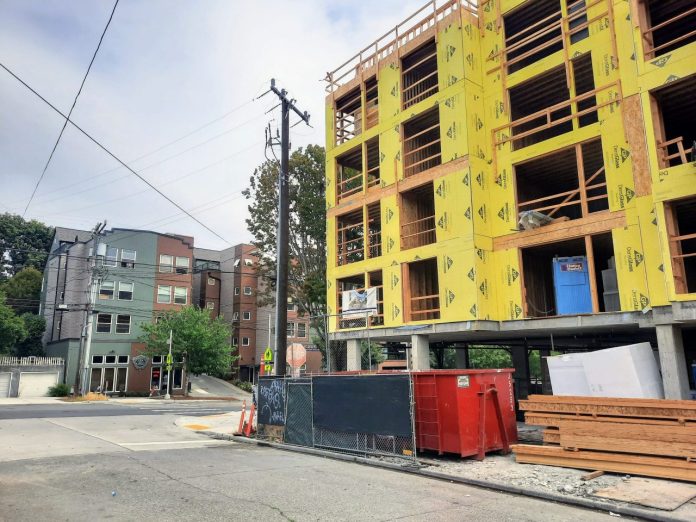
Seattle voters will have the opportunity to vote on building housing on publicly owned land on February 14. This housing would go to renters earning up to 120% of the local median income. Seattle has an immense housing shortage. In 2021, more than 40% of renter households earning less than $75,000 per year were rent burdened. And the city was short an estimated 21,000 affordable housing units. To address the housing shortage, we need to say “yes, and” to any plan that seeks to improve the supply of affordable housing.
Seattle Initiative 135 has many virtuous qualities. Building mixed-income housing reduces the concentration of poverty, which allows low-income families to interact and form social connections with residents of different socio-economic statuses. In addition, because some residents would pay near the market rate, this would enable the publicly owned housing to generate revenue for the city in perpetuity.
Land is Seattle’s most valuable resource, and we should use it to benefit Seattle as a whole. Dense, affordable housing would be the best use for many plots of publicly owned land. Critics of the initiative ostensibly aren’t against building affordable housing but against this specific plan. However, to build a better future for Seattle, we all need to start saying “yes, and” to housing.
“Yes, and” is a concept from improvisational comedy. In an improv comedy sketch, actors spontaneously build a scene. In order to build a scene from nothing, actors are taught to say “yes, and” to whatever their stage partners suggest. In a famous episode of The Office, Michael Scott ruins his comedy improv class by constantly turning every scene into a shootout. When his stage partner begins the sketch prancing and singing like a little girl, instead of building on that opening, Michael Scott pulls out an imaginary gun. This “no, but” ruins the improv scene’s momentum and destroys any chance at constructing a sketch.

Proponents of Seattle Initiative 135 are trying to build. But when critics say “no, but” instead of “yes, and,” they obstruct progress. I also support building housing specifically for families making less than 50% of the median income. I also support making it easier for private developers to build multifamily housing. But that doesn’t mean I’m going to say “no” to a perfectly good plan that would build affordable housing and eventually pay for itself.
We can’t let perfect be the enemy of good enough. Most Americans support policies to build affordable housing. However, we will stay stuck with another decade of inadequate housing construction if we don’t start saying “yes, and.” Building housing is inherently a collaborative process, just like stage-acting. One person’s perfect is never going to be everyone’s ideal. So to work together and build a better future for Seattle, one where homelessness abates and more families can afford shelter, Seattleites need to vote “yes” on I-135. And if next year, there is another initiative on the ballot with different specifics but the same overarching goal, I will say “yes, and” again.
The Urbanist reminds you that ballots for the Special Election are due February 14, 2023.

Daryl Fairweather (Guest Contributor)
Daryl Fairweather is the chief economist of Redfin. Her insights have been featured on 60 Minutes, CBS Evening News, as well as in the New York Times and Washington Post. Prior to joining Redfin she was a senior economist at Amazon working on problems related to employee engagement and managing a team of analysts. During the housing crisis, Daryl worked as a researcher at the Boston Fed studying why homeowners entered foreclosure. Daryl received her Bachelor's of Science from the Massachusetts Institute of Technology and received her Ph.D. and Master's degrees in economics at the University of Chicago where she specialized in behavioral economics.''

